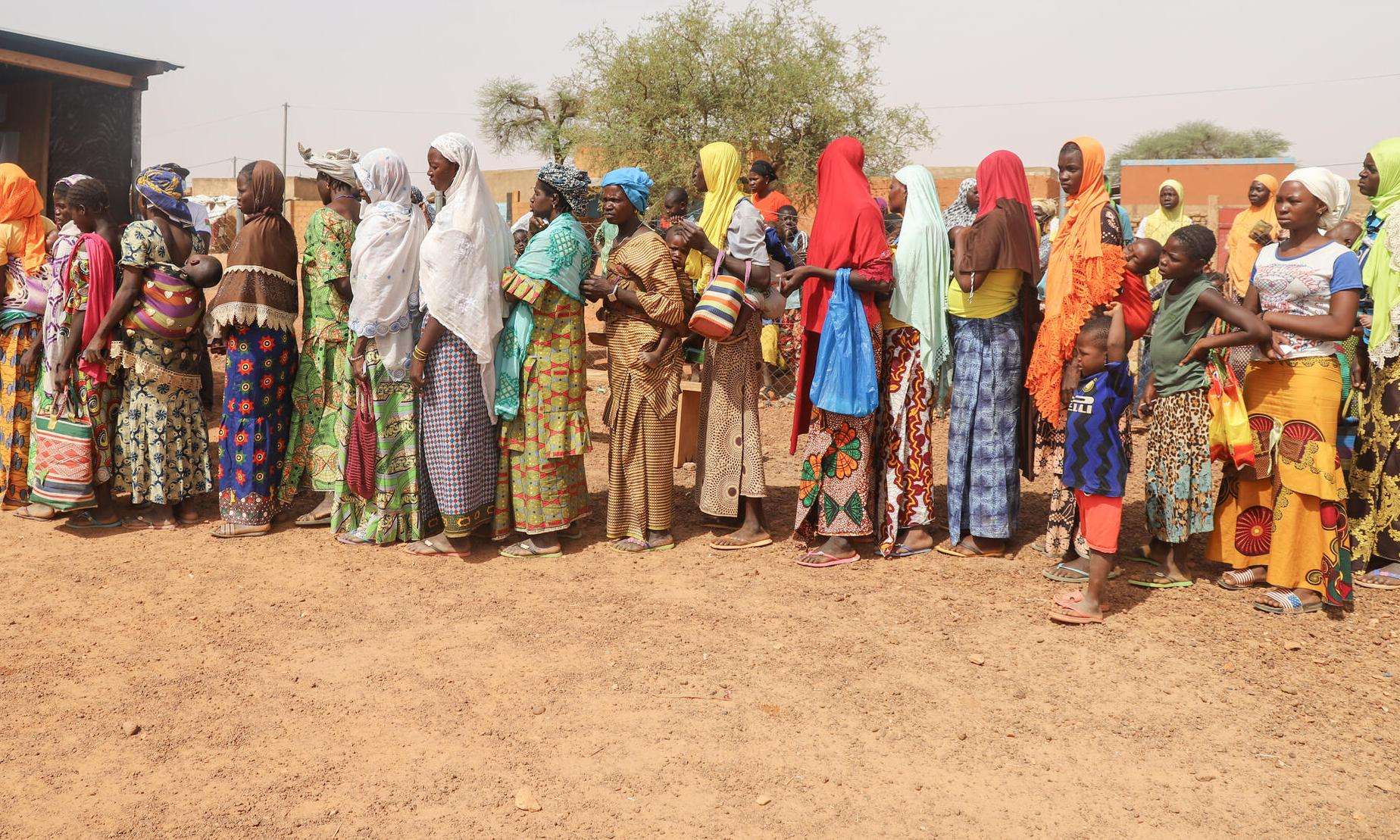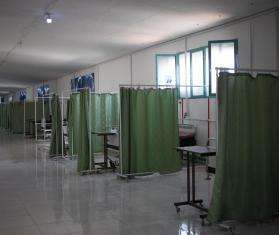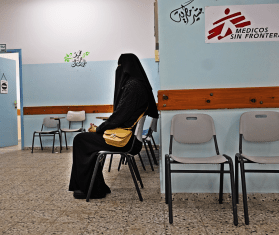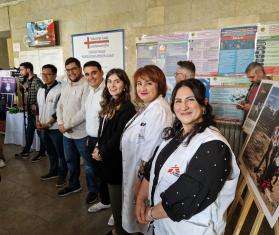For over a year, people in the town of Djibo, Burkina Faso have been living under blockade by non-state armed groups, surviving with little food, water, and electricity. With restricted movement and limited means of communication, access to basic services like health care is severely lacking.
The blockade of Djibo is just part of the unprecedented humanitarian crisis currently afflicting Burkina Faso. Almost two million people have fled ongoing clashes between the Burkinabe defense and security forces and armed groups. Clashes on Djibo’s outskirts have resulted in a mass influx of people seeking refuge in the town. Of its 300,000 inhabitants, 90 percent are internally displaced, living in camps or with host families. Half are children.
Caught in the conflict, people in Djibo are relying on humanitarian assistance to survive as living conditions deteriorate rapidly. Resources are so scarce that for long periods of time, people living there have resorted to eating leaves. Doctors Without Borders/Médecins Sans Frontières (MSF) is responding to the needs of malnourished children, supporting Djibo’s health center, and rehabilitating water infrastructure, but more support is needed to sufficiently address the lack of food in the coming months.
Preventing child malnutrition
"I had nothing left to eat for my children," said Safi, a 30-year-old mother of five. Safi’s husband was killed by armed groups on the way to Djibo, where their whole family sought refuge after fleeing the nearby village of Yalanga.
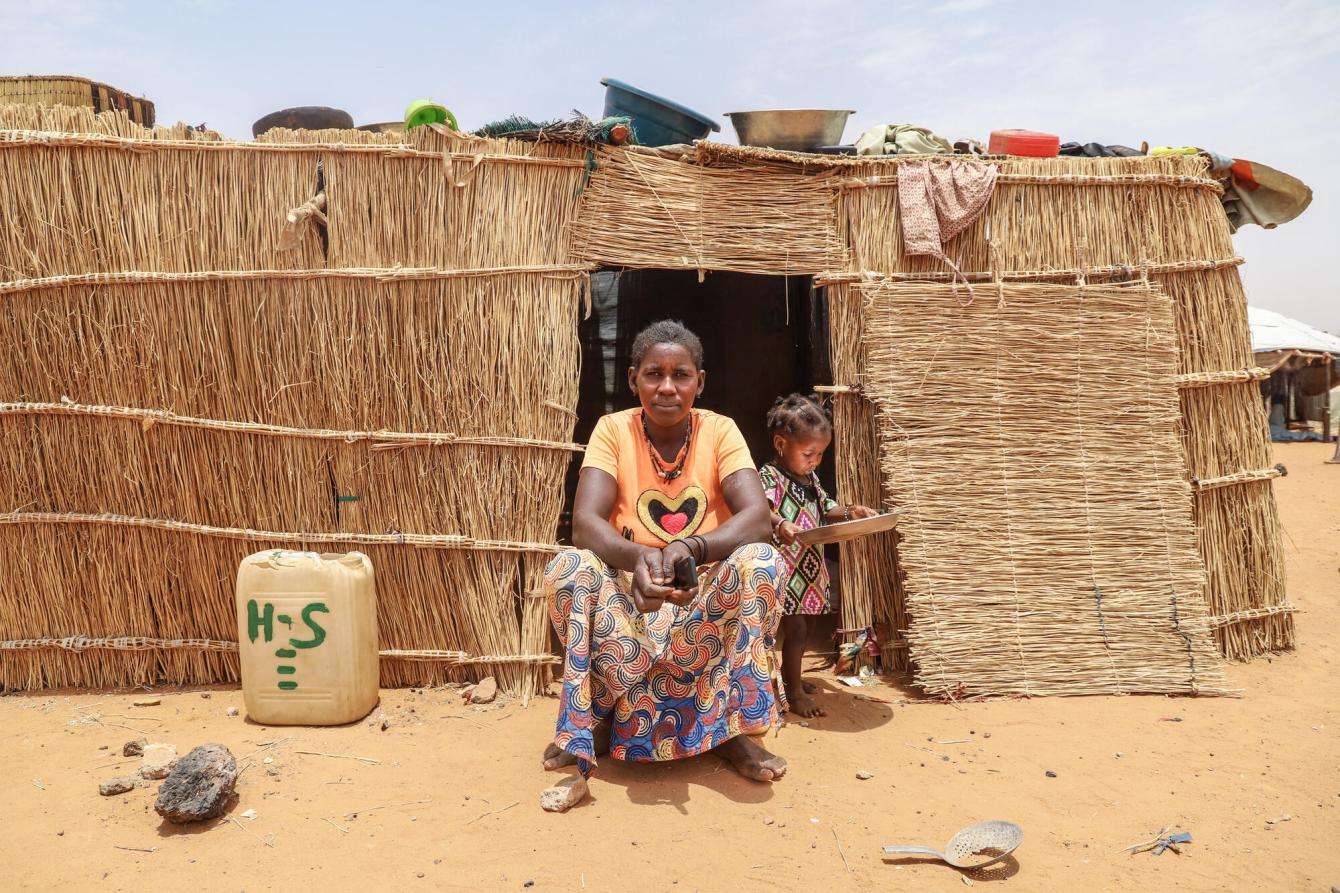
In March, a convoy of food and necessities reached Djibo under armed escort, four months after the last supplies were delivered. Still, the food and security crises remain critical. In April, MSF teams distributed 57 tons of nutritional BP-5 biscuits to more than 12,000 children. These biscuits are used as a nutritional supplement to prevent malnutrition. Made of wheat flour, fat, vegetable oil, sugar, soya protein, vitamins, and minerals, it is a fortified food with high energy value. Each biscuit is equivalent to a month's worth of food.
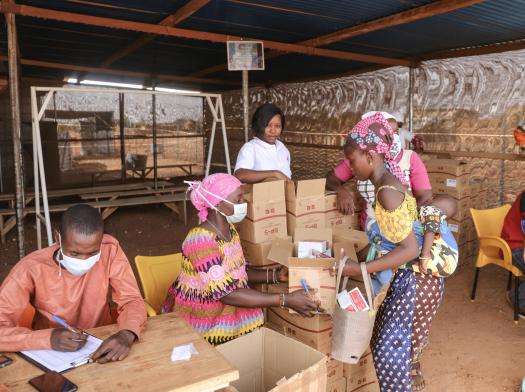
An MSF team distributing BP-5 boxes to mothers. Burkina Faso 2023 © MSF/Nisma Leboul
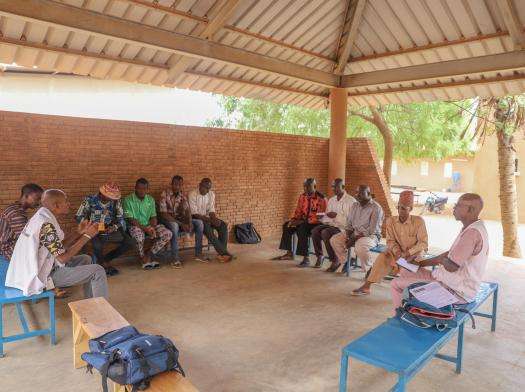
Community leaders meeting in Djibo to father feedback about the BP-5 distribution campaign. Burkina Faso 2023 © MSF/Nisma Leboul
Three meals a day and a solar-powered surgical unit
The blockade has also heavily affected access to health care. Most medical professionals have left Djibo, and several facilities have closed due to the difficulty obtaining medicines. Those that remain are operating at minimal capacity. “We are living in great suffering,” said one community leader.
Since 2018, in collaboration with Burkina Faso’s Ministry of Health, MSF has supported Djibo medical center with supplies, including a surgical unit powered by solar panels. In addition to free-of-charge care, patients and their families receive three meals a day. We are also supporting Djibo’s water infrastructure, facilitating access to drinking water and reducing risks for women who no longer need to walk long distances to fetch water.
MSF’s teams in the region—most of whom are living and working in their own communities—have continued to work tirelessly, despite the challenges. “In addition to what MSF is doing for the people of Djibo, we also have been supported—do not forget that this situation had an impact on us and our families,” said MSF health promotion supervisor Hamadoum Moussa.
Food supplies were flown in at the height of the blockade to ensure our teams and their families had enough to eat. Despite the extremely challenging situation, we remain committed to responding to the needs of the community.
